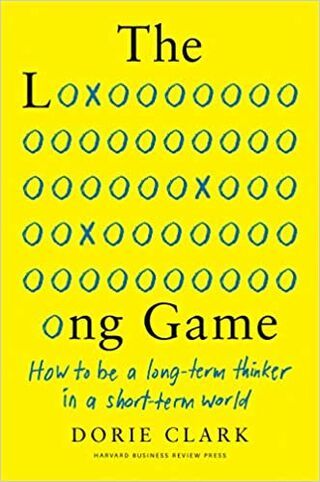Dreaming
How to Reach for Your Dreams (Really)
Hint: It takes long-term thinking. Expanding your time horizon helps.
Posted September 17, 2021 Reviewed by Davia Sills
Key points
- Achieving your goals takes time. Remain realistic about what is possible.
- Create pockets of time to think by removing pesky details from your day.
- Focus on baby steps. Every mountain climbed begins with the first foot forward.
- You don't need to know your life's purpose right away. Do what interests you and see what happens.
Under pandemic conditions, our world has shrunk down to a laser-like focus on the immediate, while long-term thinking has been placed on the backburner in the name of survival. It may sound drastic, but global conditions have robbed us of the ability to think much about the future. Yet forward-thinking is a crucial part of being human. We need to focus on the time before us to feel a sense of progress.
As we slowly bounce back from a worldwide crisis, it is time we take back our autonomy to move from a reactive to a proactive state of mind. Who better to usher us into that future than Dorie Clark, author of the new release, The Long Game: How to Be a Long-Term Thinker in a Short-Term World? I recently sat down with her for a Zoom chat about her book.
Clark claims we can indeed shift our thinking in three powerful ways:
1. Create pockets of time to allow ourselves to think, thereby removing the niggling details of life. (So lock your phone in the closet and put on your walking shoes for a "ma moment.")
2. Focus on the things that matter most. Ask yourself that question every morning. What is most important to me today?
3. Keep the faith. Setbacks happen. It doesn’t mean you are a failure.
In Clark’s view, people tend to set up unrealistic expectations of themselves. She once met an actress friend who wanted to write, produce, and perform in a Broadway play within one year. Having chased that dream herself, Clark knows the institutional side of things requires a lot more time than that. Setting up a realistic time horizon to chase your dreams is a necessary parameter for keeping the faith.
She offers several antidotes for maintaining motivation:
1. “Optimize for interesting.” You don’t need a neatly defined life purpose or passion to try out new things. Pursue what interests you, but keep the bar low. Do you like to sing? Then go to a karaoke bar or try out a few tunes and record them for your friends. You don’t need to be famous to be happy.
2. Don’t wait for inspiration. Sitting on your hands until lightning strikes is not the best way to get things done. Take action. Engage in new experiences. You’ll be surprised what shows up for you in your life when you do.

In her book, Clark outlines five projects into which she put a great deal of effort, such as co-writing a book with a famous author and applying for a spot to speak at a top industry conference. They were big dreams accompanied by the willingness to do what it takes to achieve them. Only one was fully realized, but her positive attitude remains unabated. On those particularly hard days, she brings in some power of slow pockets of win, such as walking 90 minutes for a warm Krispy Kreme doughnut. As we chase our dreams, we need to reward ourselves along the path.
“You can accomplish almost anything if the time horizon is long enough,” Clark summarized at the end of our chat.
As Clark suggests, chasing your dreams is often like driving in 1,000 miles of fog. You can’t see but a few feet ahead, so take things one step at a time, knowing that the long term brings goodness if you keep at it. In that classic power of slow thinking, remember that time is on your side if you let it be.


